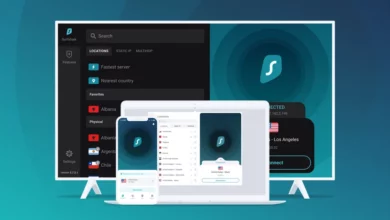Is Playwright better than Puppeteer?
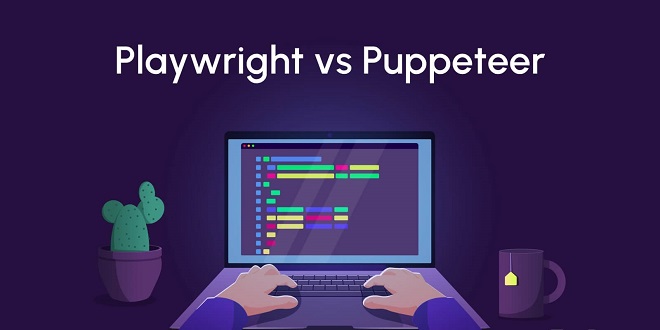
The significance of browser automation as a critical tool for every single thing from web scarping to automating internal tools to E2E tests has led to the origin of myriad automated libraries and platforms. The two most common libraries to assist you with browser automation are Playwright and Puppeteer. Playwright and Puppeteer are both Node.js libraries and their ongoing battle will end not end soon. Let us take a look at what makes each of them attention-grabbing and consider the factors that should aid in deciding which one to employ.
Intro to browser automation history
Browser Automation isn’t a fresh new concept. It started in the 2000s with the requirement for a reliable test framework to simulate user connections within a web app’s User Interface. One of the first pioneers in the marketplace was Selenium, which originated in the year 2004 and was shaped by ThoughtWorks. It was the de facto option for an extended time (nearly years ahead). But, it was not without its flaws. Selenium testing was unstable, flaky, as well as resource-heavy (the Se (Selenium) driver had to depend on fully-blown browser instances). Ultimately, the notion of a headless browser was to begin to tackle those problems. The most popular instance is PhantomJS, which was deprecated by its author in the year 2018.
However, ever since 2017, both Firefox and Chrome have supported interfaces to remote controlling browser examples. The browser automation market took off in the 2010s early time when browser-based Software as a Service (SaaS) applications started to take over as the standard for software apps. Soon, numerous companies and use cases started to profit from browser-automated practices. This gave mount to various browsers automation solutions, like browserless, and libraries like Playwright and Puppeteer.
What is Playwright Framework?
The playwright is a free or open-source Node.js library released by Microsoft that came into reality in the year 2020. It comes with a series of APIs used to automate major browsers such as WebKit, Firefox, and Chromium. Its first public version was launched on 31st Jan to enhance automated User Interface tests. With the assistance of these APIs, you can write code to form new browser pages, navigate to different pages, and interact with on-page elements. It lets you run end-to-end testing through these APIs which enables controlling headless browsers.
The Playwright is compatible with approximately all OS (operating systems) such as Windows, Linux, and macOS. It can also be integrated with main CI/CD tools like Azure, Jenkins, TravisCI, CircleCI, etc., as well as testing frameworks such as Jest, Jasmine, Mocha, and JavaScript. Playwright supports programming languages such as .NET, Python, and Java. The Playwright is tremendously useful to run cross-browser tests on complicated apps. It is accurate and provides extensive coverage with higher speed.
Core Features of Playwright Test Tool
Here are some exclusive features of the Playwright test framework:
- Playwright supports cross-browser development on Chromium, WebKit, and Mozilla Firefox – counting MS Edge, Chrome, Opera, Firefox, and Safari.
- Cross-platform implementation is supported on macOS, Linux, and Windows.
- Testing cross-language, counting TypeScript, JavaScript, Java, Python, and .NET – prefer the environment that suits you whilst still covering all formats and areas.
- Automated-wait, smart assertions that redo until an element is found, & test data tracing – keeping track of videos and logs without problems.
- Built with advanced architecture and no restrictions, the app lets you interact with multi-tab websites, and multi-page like a real user, and effortlessly handles browser as well as frames events.
What is Puppeteer Framework?
Puppeteer is a Node.js library and also a browser-driven framework from the team of Chrome DevTools It has restricted support with both Microsoft Edge and Firefox and lets programmers interact as an object with a web browser, calling methods like .type() or .goto(). Puppeteer framework doesn’t bundle its own testing framework, however, it works within generic JavaScript test frameworks such as Mocha or Jest. Even though it was built by Chrome developers for Chromium, both Microsoft Edge and Mozilla Firefox have limited support. It came into existence in 2017. Prominent traits of Puppeteer count performance testing, screenshot testing, web scraping, & automation.
Puppeteer makes it simple to get commenced with browser automation. However, some frameworks like Selenium use the WebDriver protocol, which necessitates running a server that acts as an intermediary between the browser and Selenium. For instance, there is a geckodriver (for Firefox), ChromeDriver, and a safaridriver. This prerequisite for a special server adds complication. Puppeteer, on the contrary, controls Chrome utilizing the non-standard DevTools protocol, thus it talks to the browser straight and offers extra functionality over Se (Selenium) like intercepting network requests.
Core Features of Puppeteer Test Tool
Here are some of its crucial features:
- Form a test environment that lets you update your testing and execute them in the most recent version of Google Chrome, with all the newest browser features, JavaScript, and API.
- Supports cross-platform and cross-browser tests and is compatible with a set of OSs (operating systems) & programming languages.
- Enables you to create automated screenshots.
- Integrated with famous and well-known CI & Agile tools like TravisCI, Jenkins, and TeamCity.
- Lets you automate UI testing, form submission, as well as other activities on your website.
- A growing community with an updated libraries and extensions.
Playwright vs Puppeteer: What are the differences?
Both Playwright and Puppeteer are primarily classified as “Browser Testing” and “Headless Browsers” tools respectively. Software Developers describe Playwright as a “Node library to automate Firefox, Chromium, and WebKit with an individual API (By MS (Microsoft)“. It allows cross-browser web automation that is capable, ever-green, fast, and reliable. On the flip side, developers explain Puppeteer as a “Headless Chrome Node API“. The Puppeteer can also be configured to use non-headless (full) Chrome.
| Criteria | Playwright | Puppeteer |
| Sponsor | Microsoft | |
| Browser | Chrome, Edge, WebKit, Safari, Firefox, | Supports Chrome, Chromium, and limited support to Firefox and Microsoft Edge |
| Programming Language | Supports numerous languages such as JavaScript/ TypeScript, Python, Java, .NET | JavaScript |
| Testing | Included | Any JavaScript test framework |
| Grid Support | Sauce Labs | Under development |
| Prerequisites | NodeJS should be installed | Is a Node.js library |
| Ease of Installation | Easy to Install | Easy to Install |
| Test Runner Frameworks Supported | Jest, Mocha, Jasmine | Jest, Mocha, and Jasmine |
| Architecture | Headless Browser with event-driven architecture | Browser Driven architecture |
| Support | Limited community help | Has a huge community |
| Category | Open source | Open source |
Playwright and Puppeteer are both free and open-source tools. It seems that Puppeteer with 69.9K GitHub stars has a higher adoption rate than Playwright with 20 K GitHub stars. Both Playwright and Puppeteer can run through a cloud-centric “grid” for parallel processing.
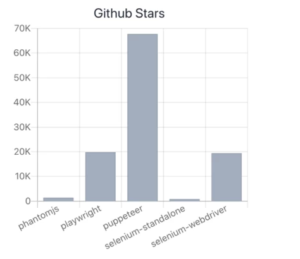
What can we accomplish using such Libraries?
- All kinds of automated tests: Performance tests, UI tests, testing Google Chrome Extensions, end-to-end tests, service worker tests, etc.
- Programmatically manipulating a browser
- Web scraping as well as data mining
- Emulating devices: type of device, timezone, location
- Generating an API to a site that does not offer a publicly available API
- Web automation, RPA, workflow automation like online submitting forms or automated data entry
- Crawling a SPA (Single-Page Application) and creating pre-rendered content
- Recording videos of your test, taking screenshots, and automatically creating PDFs of website pages
Now that we covered the fundamentals of both libraries, which one should you opt for in your projects? Both libraries share some substantial differences and several similarities. When making the correct choice, you must consider a couple of things.
Here are some of the critical factors to take into account while picking out between a Puppeteer and a Playwright.
Is speed your main concern?
Puppeteer has roundabout zero performance overhead, so it is faster. Yet, so is Playwright. Therefore this was a trick question. You can decide on either one of them if you would like your solution to be the fastest.
Is consistency your priority?
Puppeteer is ahead on this section. There have been some cases when Playwright’s key benefits (being cross-browser) have backfired with some noticeable problems with WebKit and Firefox. Back then, depending on patched versions of such browsers for a short time seemed lesser reliable compared to Puppeteer. However, those cross-browser problems are now long fixed, reinstalling Playwright as an unfailing and reliable option.
Playwright vs Puppeteer: Which one is better for you?
Here is what makes the Playwright library stand out:
- Necessitates zero setups. Similar to Puppeteer, your project of Playwright can be set up in mins via an npm init playwright@current command.
- Cross-browser assistance. If you are seeking a browser range to select from, Playwright is your better bet. This library supports WebKit, Firefox, and Chromium. In addition, the most recent Playwright ensures to support the newest browser version at any moment, therefore there is no need to be anxious about mismatches here.
- Supports languages. Languages is another area or specialty where Playwright plays the flexibility card. JavaScript, TypeScript, Java, Python, – you name it.
- Community factor. Playwright’s Slack, Ambassadors, Stackoverflow, and YouTube, are here to assist you with queries you might have, errors report, and authorized updates. You can also follow the Playwright Twitter team.
- Still a WIP.Whilst Playwright can control Edge, Firefox, and Chrome with a solo API, some may note that their API is still growing (albeit speedily), which may prompt one to believe that Playwright is a master of none but a jack of all trades. That being said, the Playwright team is, however, responsive to solving open problems, as well as pushing fresh groundbreaking traits. Hence, staying tuned pays off very much here.
- Browsers Supported by Playwright. This Node.js library continuously updates its support of browsers, so that the most recent Playwright would support the newest browsers at any time. Accordingly, you require executing the install command all time you update Playwright.
- WebKit (13 & above)
- Firefox (76 & above)
- Chromium (84 & above)
- MS Edge (Edge 80 & above)
- Chrome (Google Chrome 66 & above)
Playwright end-to-end tests have slowly gained fame. Many software developers consider it one of their most preferred frameworks to work with. The State of JS survey revealed that while Cypress adoption is high rising, Playwrights adoption is still in the primary phases of software development. But, GitHub stats reveal the popularity of Playwright is rising (1.8k active users and 39.3k Stars and forks).
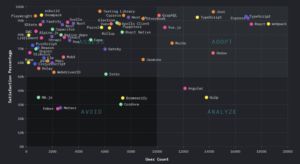
Also read: How to Setup Playwright Test Automation Framework?
How To Run Playwright Testing on LambdaTest?
Playwright cloud grids such as LambdaTest let you run Playwright testing at scale. The pristine platform like LambdaTest lets you execute automated tests on a web browser farm of 40 or more browsers and OSs to expedite the test implementation in a scalable mode. Furthermore, it enhances the test coverage with great product excellence.
To run your first Playwright automated tests script online, consider our descriptive GitHub repository and support documentation. You shouldn’t need to worry about disputes with Playwright infrastructure. Your first 100 Playwright automated test minutes are on us with a free sign-up in the moment go. You can also take benefits of manual responsive tests, cross-browser tests, and more with an extended guarantee of free access to LambdaTest, the world’s fastest-growing cloud Playwright Grid.
Our full documentation will aid you to develop a superior functional understanding of the Playwright library. Finally, kick-start your Playwright journey by executing your first Playwright test script on the LambdaTest real-time cloud.
Puppeteer’s critical strengths count:
- Chrome-centric.The fact that both the Puppeteer library and Chrome browser are managed within similar team (Google) makes Puppeteer a genuine option. The team takes into account technical inconsistencies, so they ensure that installing Puppeteer also downloads a working, compatible version of Chromium automatically. And a few extra Chrome advantages for those who select to use Puppeteer to conduct their testing: thanks to being Chromefied, it provides useful functionality to follow the webpage performance and spot errors utilizing a so-called timeline trace.
- Requires zero setups.The Puppeteer library is an NPM native project which denotes you merely require executing two commands in CLI to start up. Simply install it via npm in any project, and it is ready to start working with.
- Community factor. As Puppeteer launched in the year 2017 with 20 percent of contributions to the library from the community – which is fairly a huge number for a free/ open-source project – it comes with zero surprises that the Puppeteer developer community remains active these days. Look into their discussions on Stackoverflow, Dev.to, and the Puppeteer contribution page; there is a higher possibility your issue is already there too.
- Browsers Supported by it. Puppeteer 3.0, a Node.js library that offers a higher-level API to manage headless Chromium or Chrome over the DevTools Protocol, now supports Mozilla Firefox besides Chrome. The newer version also upgraded support to the most recent Chrome 81 & isolated support for Node 8.
Puppeteer, which was initially launched in Jan 2018, has rapidly gained popularity as the leading free/ open-source automated framework.
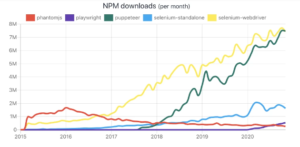
Explore The State of JS 2021 Puppeteer test data on the basis of developer Usage Interest, Satisfaction, and Awareness. Puppeteer has revealed a noteworthy increase in its awareness amid the tester and developer community. It rose to 78% in 2021 from 67% in 2019.

This framework does fall short on a few general facets, though, largely related to versatility:
- js to be successful.Unfortunately, Puppeteer is appropriate for automation in Node.js or JavaScript exclusively. Programming languages aren’t supported at this time.
- Lack of cross-browser assistance. Puppeteer succeeds in automated based on headless Chromium (& Chrome), however, that is pretty much where its impact ends. In addition, after 3 years, Firefox assistance is still a WIP in its experimental stage. No other browser engines support it at this time.
How To Run Puppeteer Testing on LambdaTest?
Puppeteer popular cloud grids such as LambdaTest enable you to run the Puppeteer tests at scale. An incredible platform like LambdaTest lets you run automated cross-browser tests on an online browser farm of 40+ browsers and OSs to accelerate the test execution in a scalable mode. Besides, it improves test coverage with enhanced product quality.
To execute your first online Puppeteer automation tests script, refer to the GitHub repository. You don’t need to worry about Puppeteer infrastructure’s challenges. The great news is that your first 100 Puppeteer automated test minutes are on us with a free sign-up. You can also gain the benefits of manual responsive tests, cross-browser tests, and more with a life span of free access to LambdaTest, the famous and fastest-growing real-time cloud Puppeteer Grid.
The Puppeteer tutorials will assist you to build up a better functional know-how of the Puppeteer framework. You can straight kick-start your Puppeteer automation journey by executing your first Puppeteer testing script on the LambdaTest real-time cloud.
Run Automated Puppeteer Tests Online
Conclusion – Playwright vs Puppeteer
Both Playwright and Puppeteer are powerful and great Node.js libraries focused on driving headless browsers. They have more or less identical APIs and offer similar functionality. The playwright is ahead in the category of cross-browser, whilst Puppeteer wins in extended support as it has the Chrome team as support itself. In any case, both libraries are better solutions for browser automation. In fact, there is no doubt that both Playwright, as well as Puppeteer libraries, are next-gen libraries for automation. And with the backing of big giants or market players like Microsoft and Google, they will ultimately become more reliable and progressive.
Check out the most recent The State of JS 2021 Playwright and Puppeteer tests data based on developer Interest, Retention, Awareness, and Usage.

Eventually, the choice somebody makes solely relies on its use case. When it comes to high-time library support, Playwright is still relying on the patched WebKit Firefox versions. On the flip side, Puppeteer keeps pace concerning enhancing its libraries. So it is a big perplexity about its future. No matter what you decide – Playwright or Puppeteer, cross-browser tests is essential. It makes certain a consistent site experience irrespective of the browser or device it is accessed from.




